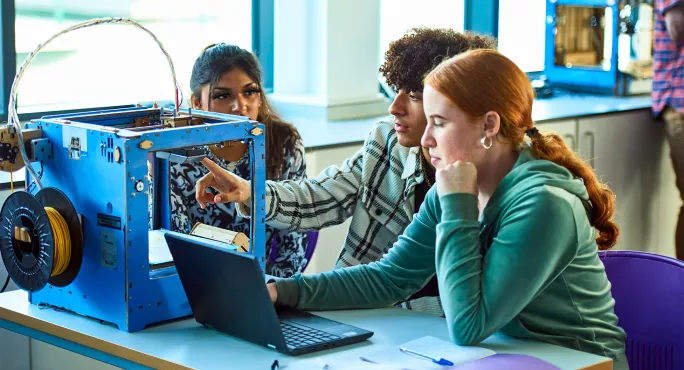The International Baccalaureate Career-related Programme (CP) focuses on vocational skills and hands-on experience for students aged 16-19.
As the name suggests, the CP centres on career-related study. It also draws on aspects of the IB Diploma Programme with the aim of developing students’ intercultural understanding and putting them on the path to work.
The CP began as the IB Career-related Certificate in 2006, and was relaunched as the Career-related Programme in 2014. Now there are more than 350 schools offering it in 52 countries.
IB Career-related Programme
The CP Core
The CP is a three-part educational framework. It requires students to study at least two Diploma Programme courses, while also studying the CP Core and career-related studies.
The CP Core consists of four areas: language development, personal and professional skills, a reflective project and service learning.
Language development
The CP requires study of an additional language as part of its push to prepare students for an international world of business.
Students are expected to dedicate at least 50 hours to language development, and they demonstrate their ability and engagement with this component by maintaining a language portfolio.
Reflective project
The reflective project is an assessed, research-based body of work that culminates in either a 3,000-word written essay or one of 1,500-2,000 words accompanied by an additional format (film, oral presentation, interview, play or display).
More Tes guides:
The reflective project develops and tests students’ ability to plan and conduct research, draw conclusions using their analysis and reflect on that process.
Service learning
Service learning is designed to give students the opportunity to apply their learning in a practical sense, serving a community need. Through service learning, students use their knowledge and social skills to take on problems that have a connection to their career-related study.
There are four different types of service in action:
- Direct service
- Indirect service
- Advocacy
- Research
The service learning component could take many forms, from volunteering to developing a solution to a local environmental issue, coaching a sports team or working with animals. Overall, students are expected to dedicate 50 hours of voluntary service.
Personal and professional skills
The personal and professional skills element is designed so that students develop attitudes, skills and strategies for personal and professional situations and contexts.
The CP course emphasises skills development for the workplace. The IB says the personal and professional skills element should include:
- Personal development
- Intercultural understanding
- Effective communication
- Thinking processes
- Applied ethics
Each school designs its own unique professional skills course that enables its students to make links to their career-related studies.
This element requires a minimum of 90 timetabled hours, and the school is responsible for assessment.
Career-related studies
Career-related studies - in a student’s chosen field - aim to prepare learners for university, an internship or an apprenticeship.
Students learn about “theories and concepts through application and practice while developing broad-based skills in authentic contexts”, the IB says.
At the end of their career-related studies, students receive a certificate awarded by their career-related study provider. The CP collaborates with providers of major career-related qualifications, such as Pearson for Btec qualifications.
Common vocational qualifications used as career-related studies include Btecs in business, sport, applied science, engineering and ICT. Higher National Certificates (HNCs) and National Certificates (NCs) are also used.
The Diploma Programme element
Students study a minimum of two Diploma Programme courses as part of the CP. These courses can be studied at standard or higher level, and a student can study more than two if it suits their career-related studies and timetable.
The courses are selected by the school from six subject groups:
- Language acquisition
- Studies in language and literature
- Individuals and societies
- Sciences
- Mathematics
- Arts
The chosen Diploma Programme courses should complement each student’s career-related studies, so that they can develop academic and professional skills together, connecting those skill sets.
Find more about the IB Career-related Programme here.
For essential weekly intelligence on the international schools sector, sign up for the Tes International newsletter





